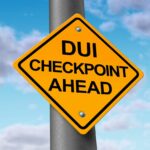Recent Blog Posts

The Consequences of Ignoring a Warrant in California
Courts can issue arrest warrants when law enforcement believes you have committed a crime, or when you fail to appear at a scheduled court date. If you have reason to believe there’s a warrant out for your arrest, it’s vital to respond appropriately with the help of a knowledgeable California defense lawyer. Read on… Read More »

Can a Third Party File a Police Report on Behalf of an Alleged Crime Victim?
In many cases, criminal charges are brought because an alleged victim reports the crime to the police. The victim chooses to “press charges,” meaning they ask the police and prosecution to pursue criminal charges. What if the alleged victim wants no part of the case? Can a third party report an alleged crime to… Read More »

Burglary vs. Robbery in California
We hear the terms “burglary” and “robbery” tossed around a lot. In movies and television, they’re sometimes used interchangeably. Burglary and robbery, however, are specific, distinct criminal acts. If you’ve been accused of or arrested for a crime, it’s important to understand the exact charges, the parameters, and the potential punishments. Continue reading to… Read More »

Can California DUI Stop Me From Buying a Gun?
The Second Amendment to the United States Constitution guarantees your right to own a firearm. State and federal laws can, however, impose reasonable restrictions on that right. They can limit your ability to own certain types of weapons or carry firearms in certain areas. Once you are convicted of a crime, moreover, the government… Read More »

Can You Refuse a DUI Checkpoint?
As a general matter, police officers must have a reason for pulling you over. They cannot simply decide to make a traffic stop on a whim. There are certain exceptions to the general rule, however. In California, police set up checkpoints to check for drunk drivers, and they ask drivers to stop even without… Read More »

Can Police Search Your Home Without a Warrant?
The Fourth Amendment to the United States Constitution and Article I, Section 13 of the California Constitution protect California residents against unreasonable search and seizure by the government. State and federal laws generally require police officers to obtain a warrant before entering a citizen’s home. Your attorney can get evidence obtained during an illegal… Read More »

What to Do After Your DUI Probation Ends
If you were convicted for DUI in California, you might have faced jail time, a suspended license, or probation. After you have served your time and your probation is up, what steps should you take to ensure that you satisfy all of your legal duties and get your life back on track? Are there… Read More »

How to Prepare for Your Court Appearance
Being arrested or charged with a crime is a harrowing experience. Most people will not have much experience with the inside of a courtroom; it is intimidating at the best of times, without the added stress and fear connected to grappling with criminal charges and the possible ramifications of a conviction. If you are… Read More »

What are the New Traffic Laws for 2020?
California legislators are constantly working to improve traffic safety in light of the continued rise in the number of traffic fatalities each year. To that end, a number of new traffic laws go into effect this year. It is important to be aware of these new laws to avoid triggering any civil or criminal… Read More »

How Long Does a Restraining Order Last in California?
A restraining order is a court order issued upon application by one party that forbids another party from engaging in certain activities. A typical restraining order stemming from an allegation of domestic violence, for example, may prohibit one party (the target) from engaging in any violent or harassing conduct toward another party (the alleged… Read More »



